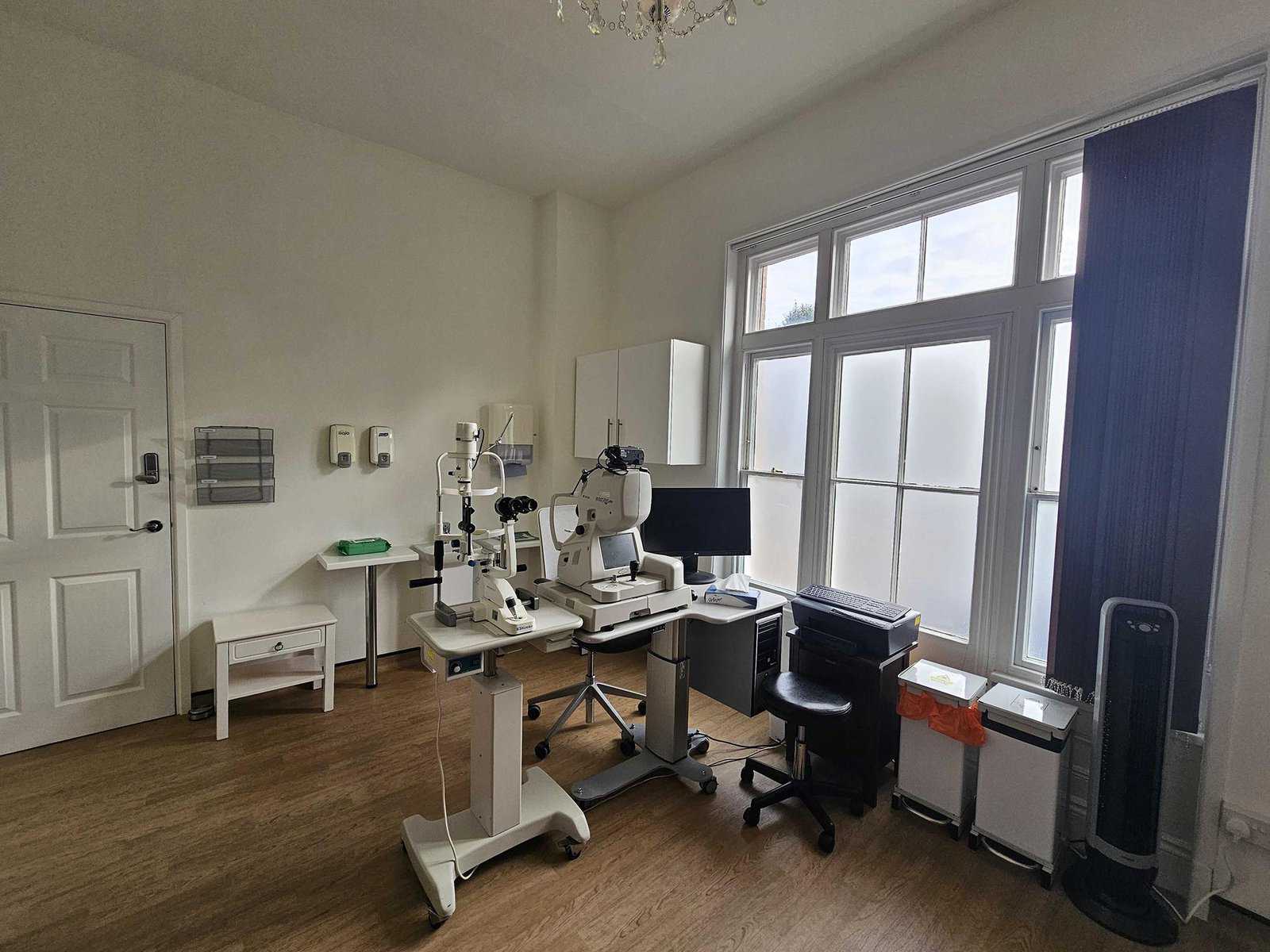Epiretinal Membrane
Regain your clear vision with expert care for Epiretinal Membrane at The Forbury Clinic. Submit an enquiry for a consultation and explore our advanced treatment options.

Overview
An epiretinal membrane (ERM) is a thin layer of fibrous tissue that can form on the surface of the retina, causing vision problems such as blurriness and distortion. Early diagnosis and treatment are crucial to preserve vision and prevent further complications. At The Forbury Clinic, we specialise in diagnosing and treating ERM with personalised care and advanced techniques. Contact us today to learn more and schedule a consultation.


What is an Epiretinal Membrane?
An epiretinal membrane (ERM), also known as macular pucker, is a condition where a thin, transparent layer of fibrous tissue forms on the inner surface of the retina, particularly over the macula. The macula is the central part of the retina responsible for detailed central vision. When an ERM develops, it can contract and cause the retina to wrinkle or pucker, leading to vision distortions and blurriness. Common symptoms of an ERM include blurred or distorted vision, difficulty reading small print, straight lines appearing wavy, and trouble seeing fine details. While ERMs can be mild and not require treatment, more severe cases may need medical intervention to improve vision.
Causes and Risk Factors
Causes
Epiretinal membranes can develop due to various factors, and certain conditions increase the risk:
Aging:
The most common cause, as the vitreous gel inside the eye shrinks and pulls away from the retina.
Eye Trauma:
Injuries to the eye can lead to the formation of an ERM.
Retinal Conditions:
Conditions such as retinal detachment, retinal tears, and diabetic retinopathy can trigger ERM formation.
Inflammation:
Inflammatory diseases of the eye, such as uveitis, can cause ERM.
Previous Eye Surgery:
Previous retinal surgery can increase the risk of developing an ERM.
Risk Factors
Age:
Individuals over 50 are more likely to develop an ERM.
Eye Conditions:
Having existing eye conditions or a history of eye trauma.
Diabetes:
Diabetic retinopathy can contribute to the formation of ERMs.
Inflammation:
Chronic inflammation in the eye can lead to the development of ERM.
Understanding these causes and risk factors helps in the early diagnosis and effective management of ERMs, improving patient outcomes.
Diagnosis
Diagnosing an epiretinal membrane involves a thorough evaluation at The Forbury Clinic. The diagnostic process includes:
- Initial Consultation: Discussing symptoms, medical history, and potential risk factors with a specialist.
- Visual Acuity Test: Assessing the clarity of your central vision.
- Dilated Eye Exam: Using drops to dilate the pupils and examine the retina for signs of an ERM.
- Optical Coherence Tomography (OCT): Imaging the retina to detect the presence and severity of the membrane.
These steps ensure a thorough and accurate diagnosis, aiding in the development of an effective treatment plan.

Treatment Options
Based on the diagnosis, various treatment options for an epiretinal membrane may be considered:
- Non-Surgical Options
- Medications
- Surgical Options
- Innovative Treatments
Observation:
In mild cases, regular monitoring to check for changes in vision or membrane progression.
Vision Aids:
Providing magnifying glasses and other low vision aids to assist with daily activities.
Anti-Inflammatory Drops:
Prescribing drops to reduce inflammation if it is contributing to the ERM.
Vitrectomy:
The most common and effective treatment for significant vision impairment caused by an ERM. This procedure involves removing the vitreous gel and peeling away the epiretinal membrane from the retina.
Membrane Peeling:
Often performed during vitrectomy, this technique involves carefully peeling the ERM off the retina to improve vision.
Advanced Imaging Techniques:
Utilising the latest imaging technology to precisely map the retina and guide surgical procedures.
Minimally Invasive Surgery:
Using small-gauge instruments to perform vitrectomy with less trauma to the eye.
At The Forbury Clinic, our multidisciplinary team ensures that each patient receives the most appropriate and effective treatment, tailored to their specific needs and health goals.
Managing Epiretinal Membrane
Managing an epiretinal membrane involves a combination of medical treatments and lifestyle adjustments to control symptoms and improve overall quality of life. At The Forbury Clinic, we provide comprehensive care and guidance to help manage ERMs:
Regular Monitoring:
Scheduling frequent check-ups to monitor the progression of the ERM and assess any changes in vision.
Healthy Habits:
Maintaining a healthy diet and managing underlying health conditions like diabetes.
Vision Aids:
Using magnifying glasses and other low vision aids to help with daily activities.
Eye Protection:
Avoiding eye injuries by using appropriate protective gear during activities that pose a risk to the eyes.
These management strategies aim to complement medical treatments and provide a holistic approach to improving eye health and overall well-being.
Complications and Prognosis
While many cases of epiretinal membrane can be managed effectively, it is important to be aware of potential complications and the prognosis:
Complications:
- Retinal Detachment: Although rare, this can occur following vitrectomy surgery.
- Cataract Formation: Surgery to remove an ERM can sometimes accelerate cataract development.
- Recurrent Membrane: In some cases, the membrane can recur after surgical removal.
Prognosis:
The prognosis for patients with an epiretinal membrane is generally good, especially with early detection and appropriate treatment. Most individuals experience significant improvement in vision following treatment. Regular follow-ups and ongoing management are crucial to prevent complications and ensure optimal eye health.


Why Choose The Forbury Clinic?
Choosing The Forbury Clinic for your epiretinal membrane treatment ensures you receive exceptional care from a team of experienced specialists. Our clinic is renowned for its expert medical staff who are dedicated to diagnosing and treating eye conditions with precision and compassion. We use state-of-the-art diagnostic tools and the latest medical advancements to provide accurate diagnoses and innovative treatments tailored to your specific needs. Our patient-centered approach prioritises your comfort, privacy, and overall well-being, offering comprehensive support throughout your treatment journey. At The Forbury Clinic, you can trust that you are in capable hands, with a dedicated team committed to helping you achieve optimal eye health and a better quality of life.
